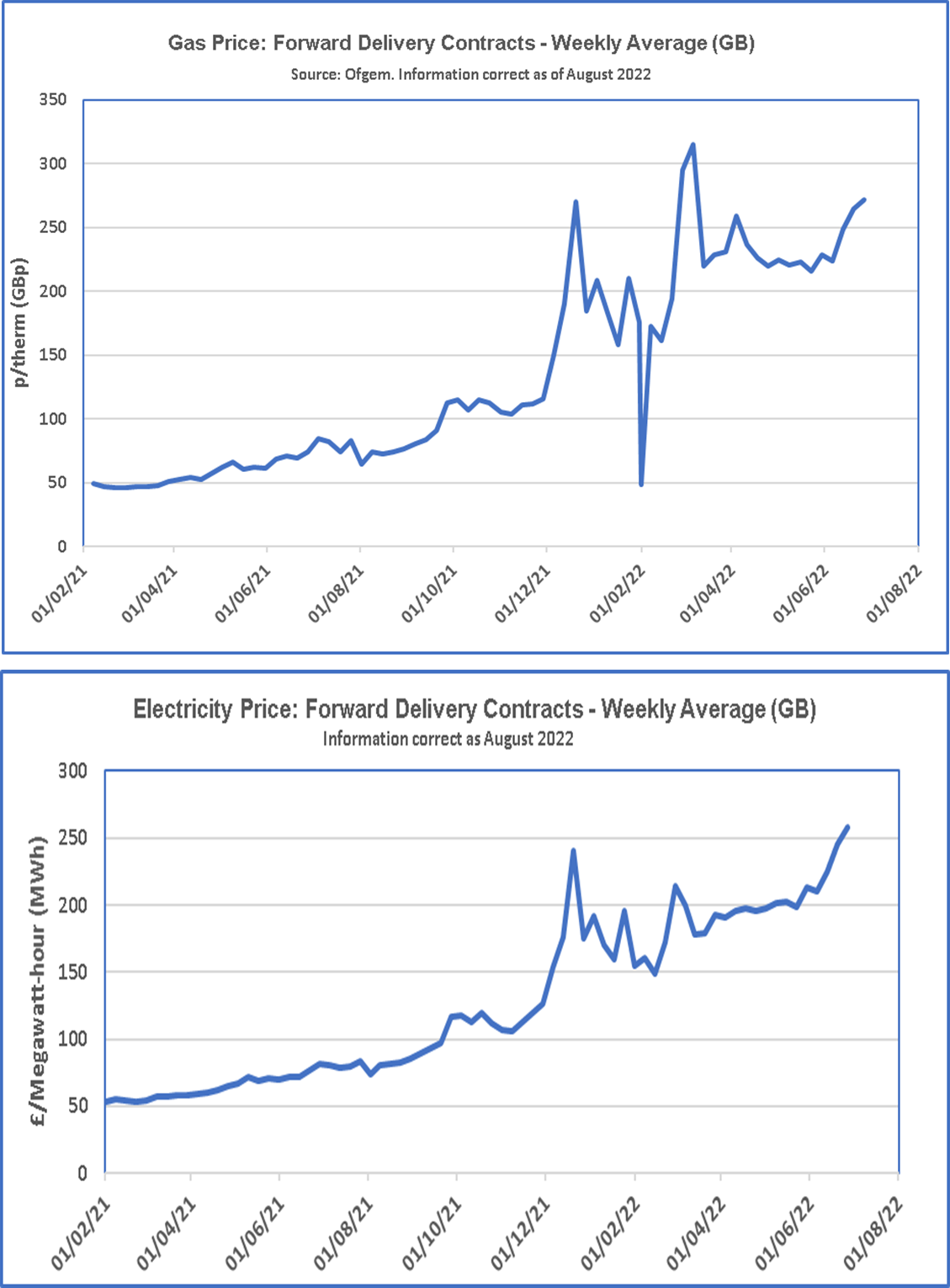30 August 2022 | Built environment, Education and employment, Health and social care, Justice and home affairs, Local government and communities
Tackling Fuel Poverty – The Way Forward

The current Ofgem energy price cap of £1,971 for UK average household bills, implemented in April this year, is already 54% and 90% higher than those in October of 2021 and 2020 respectively. But the latest forecast by independent energy consultancy Auxilione warned the price cap could surge to £5,038 by April 2023, which would be a 380% increase over the October 2020 level. Whilst Britons are still enjoying the late summer sunny days, there is no doubt a national fuel crisis is looming on the horizon. It will affect literally every UK household and push many into fuel poverty.
Fuel poverty is defined differently in the UK nations. In England, it refers to those households that have required fuel costs above the national average, e.g., £5,038 in 2023, and if they were to spend this amount, they would be left with a disposable income below the official poverty line. For a family of 2 adults and 2 children aged 3 and 7, this means the combined net disposable income after all housing costs should be a minimum of £346 per week or £17,992 per year at the 2020 level.
In Scotland, Wales, and Northern Ireland, people were considered to be in fuel poverty if they need to spend more than 10 per cent of their net household income on fuel to heat their home to a reasonably comfortable standard.
Given the current high level of inflation of 10.1% in the 12 months to July 2022, and the average UK salary (£38,600 in 2020, and the typical increase has been much lower than inflation), it is no surprise that up to two-thirds of UK households, or approximately 45m people, will be in fuel poverty in early 2023, according to the latest study by the University of York.

Part of the causes of this crisis is due to Russia's invasion of Ukraine which led to a substantial gas price increase in the continent which also affected the energy price here in the UK. The Gas and Electricity wholesale prices have increased substantially since last year, as indicated in the figure on the right. But this is not the only reason for fuel price surges. For every pound paid in energy bills, just 54p goes to buy the wholesale electricity or gas; 19p is the network costs; 10p is the operating costs; and 8p policy costs; VAT accounts for 5p; while suppliers’ profit margin and other costs are assumed at 2p each.
However, life goes on, and we must be prepared to tackle the looming crisis. As the saying goes, where there is a will, there is a way! It is interesting to note that in France, consumers have their energy bills capped at 4% till the end of the year and are not expecting a much higher price in 2023. If the French can do it, what is it that we must do to achieve the same? What will the Government under the new prime minister do to support Britons in this cost-of-living crisis? What the energy companies should do to alleviate this crisis? What initiatives and schemes we must adopt to protect fuel-poor households and support vulnerable consumers? What does this mean in the net-zero transition? To answer these very important questions and explore with leading experts in the sector, please join us on 31st August for the Institute of Government and Public Policy’s online event – Tackling Fuel Poverty: The Way Forward.
Professor David Tann – Dean of School of Architecture, Computing, and Engineering, UEL
Events

The Future of UK Immigration 2026
26 February 2026

The National Operating Theatres Show 2026
10 March 2026

The Annual Facilities Management in the Public Sector Show 2026
17 March 2026

The Future of Academies Show and Exhibition 2026
25 March 2026

The Annual Special Educational Needs and Disabilities (SEND) Conference 2026
25 March 2026
Courses

Leaders in Construction Programme - CMI Level 7
24 February 2026
6 spaces available

AI for Leaders
24 February 2026
7 spaces available

Women In Leadership
6 March 2026
-4 spaces available

Construction Leadership and Management Development Programme - CMI Level 5
10 March 2026
4 spaces available

Effective Leadership Through Emotional Intelligence - CMI Level 7 Award
17 March 2026
5 spaces available